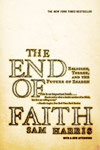In this week’s eSkeptic:
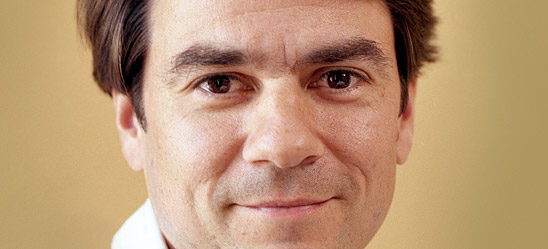
Extreme Fear: Interview with Jeff Wise
Fear is a complex and a mysterious force that can, at times, sabotage our ability to think clearly, drive us to blind panic, or give us seemingly superhuman speed, strength, and powers of perception.
This week on Skepticality, Derek talks with author and daredevil Jeff Wise, contributing editor for Popular Mechanics and Travel + Leisure about his latest book, Extreme Fear: The Science of Your Mind in Danger, which recounts Jeff’s “I’ll Try Anything” adventures as well as the science that illuminates the complexities behind our body’s responses to fear.

NEW ON SKEPTICBLOG.ORG
Folk-Wisdom Medicine versus Science-Based Medicine
For many years now there has been considerable debate between so-called complementary and alternative medicine (CAM) and mainstream science-based medicine. In reality there is no debate because there is only science-based medicine and everything else that has yet to be tested. In this op-ed (from the American Medical Associations’s Virtual Mentor Journal) Michael Shermer reminds us that skepticism should be our default rule of thumb when it comes to CAM claims.
Our Next Lecture at Caltech
Someone Else’s Twin: The True Story of Babies Switched at Birth
with Dr. Nancy Segal
Sunday, September 11, 2011 at 2 pm
IN THIS FASCINATING STORY, Dr. Nancy Segal, Professor of Psychology at California State University, Fullerton (and herself a twin and an expert on twin research) describes the consequences of unintentional separation of identical twins. She considers not only the effects on separated twins, but the implications for questions concerning identity, familial bonds, nature-nurture, and the law. Based on her extensive research into the psychology of twins and interviews with family members, Dr. Segal explores many questions of universal human significance: How do mothers know who their biological children are? How much does our family contribute to our sense of self? Are we more like the people who raised us or the people we are born to? Dr. Segal also examines custodial decisions concerning children who are the result of donated sperm or eggs by individuals outside the rearing family. She further elucidates the benefits to children from adoption.
Ticket information
Tickets are first come first served at the door. Seating is limited. $8 for Skeptics Society members and the JPL/Caltech community, $10 for nonmembers. Your admission fee is a donation that pays for our lecture expenses.
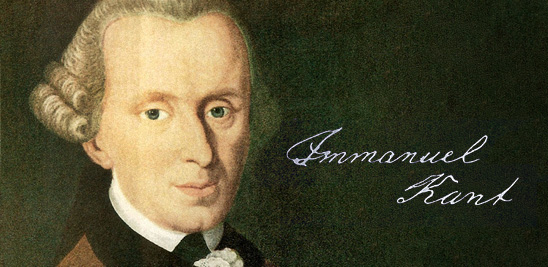
About this week’s feature article
In this week’s eSkeptic, Michael Dahlen examines Dinesh D’Souza’s Immanuel Kant-inspired philosophy that “reality as a whole is, in principle, inaccessible to human beings” and that “it is in no way unreasonable to believe things on faith that simply cannot be adjudicated by reason.”
Michael Dahlen is a managed accounts administrator for SEI Investments (SEIC: NASDAQ) and a freelance writer who has had articles published in The Objective Standard and Liberty. He holds an MS in finance and economics from Walsh College.
SUBSCRIBE to Skeptic magazine for more great articles like this one.
What’s So Great About Kant?
A Critique of Dinesh D’Souza’s Attack on Reason
by Michael Dahlen
Dinesh D’Souza, a prominent conservative intellectual and a former White House policy analyst during the Reagan administration, has ambitiously defended Christianity in recent years. He wrote a New York Times best-selling book, What’s So Great About Christianity, and he has had articles published in the Wall Street Journal and the Christian Science Monitor. He has also publicly debated prominent atheists including Christopher Hitchens, Daniel Dennet, and Michael Shermer.
For the most part, D’Souza has attempted to argue on the atheists’ own terms, that is, on the terms of reason, science, and evidence. He has tried to demonstrate that one need not accept Christianity on blind faith; one can accept it based on the facts. This characterization, however, of D’Souza’s position requires one major caveat. For the die-hard proponents of reason who are not convinced that the evidence supports the alleged truths of religion, D’Souza has a secret weapon up his sleeve: he resorts to brazenly attacking reason. Lacking all subtlety, he asserts openly, explicitly, “Human reason can never grasp reality itself.”1
In arguing against the validity of reason, D’Souza relies on the ideas of arguably the most influential philosopher in modern history, none other than Immanuel Kant. “Kant’s accomplishment,” D’Souza boasts, “was to unmask the intellectual pretension of the Enlightenment: that reason and science are the only routes to reality and truth.”2 Basically, Kant argued that the reality we perceive with our senses is not true reality; it is simply the reality “appearing” to us. True reality, the reality beneath the so-called appearances, is allegedly unknowable. “Perhaps the best way,” D’Souza states, “to understand this is to see Kant as positing two kinds of reality: the material reality that we experience and reality itself.”3 The world of appearances (material reality) Kant calls the “phenomenal world” whereas real reality (“reality-in-itself”) Kant calls the “noumenal world.”
According to Kant, we do not perceive reality as it is. Our senses and our minds provide us only with a distorted picture of reality, not reality itself. Echoing Kant, D’Souza argues that humans “see things in a limited and distorted way.”4 “Reality does not come directly to us but is ‘filtered’ through a lens that we ourselves provide.”5 As such, D’Souza continues, “our human minds have a built-in disposition toward illusion: the illusion that reality must be exactly the way we experience it.”6 Furthermore, when “we presume that our experience corresponds to reality, we are making an unjustified leap. We have absolutely no way to know this.”7
All of our knowledge, therefore, is allegedly just knowledge of “appearances,” that is, of a world the human mind subjectively creates. As Kant himself states, “all objects of any experience possible to us, are nothing but appearances, that is, mere representations, which…have no independent existence outside our thoughts.”8 “Kant’s argument,” D’Souza points out, “is that we have no basis to assume that our perception of reality ever resembles reality itself. Our experience of things can never penetrate to things as they really are. That reality remains permanently hidden to us.”9 Consequently, D’Souza concludes, “reason can never grasp reality itself.”10
Despite D’Souza’s blatant attack on reason and on our ability to perceive reality, he still wants to have things both ways. Amazingly, he says that he and Kant are not actually arguing against them.
Kant isn’t arguing against the validity of perception or science or reason. He is simply showing their significant limits. These limits cannot be erased by the passage of time or by further investigation and experimentation. Rather, the limits on reason are intrinsic to the kind of beings that humans are, and to the kind of apparatus that we possess for perceiving reality. The implication of Kant’s argument is that reality as a whole is, in principle, inaccessible to human beings. Put another way, there is a great deal that human beings simply will never know.11
If the “implication of Kant’s argument” is that reality is “inaccessible to human beings”—and that certainly is the implication—then he most emphatically is arguing “against the validity of perception or science or reason.”
These are quite abstract ideas. Before we analyze their merits—or lack thereof—let us concretize them; let us see what it would actually mean, in practice, if it was true that “reality remains permanently hidden to us.”
If a professional baseball player saw “things in a limited and distorted way,” that is, if his perception of the movement and location of a baseball was something other than what it actually is, then he would not be able to consistently hit ninety-five mile per hour fastballs. If a cardiac surgeon’s mind had “a built-in disposition toward illusion,” then he would not be able to successfully perform a coronary artery bypass surgery. If a pilot’s knowledge of his airplane, its controls, and its location in the sky did not correspond to reality, then he would not be able to lift his airplane off the ground, fly it across a continent, and safely land it at his targeted destination. If science could “never penetrate to things as they really are,” then the great innovators of our time would not have been able to create all the marvels of modern technology. For that matter, if reality is “inaccessible to human beings” and if our perception of reality did not at the very least “resemble reality itself,” then we would not be able to perform even the simplest of activities such as eating, walking, reading, or brushing our teeth.
That our experience, observations, or more precisely, our sensory perceptions provide us with direct awareness of reality is not “an unjustified leap” as D’Souza asserts. It is an axiom, an irreducible, self-evident fact.
D’Souza and Kant, however, are right about one thing: reality and our perception of reality are two distinct things; they are not identical. The erroneous idea that perception and reality are one and the same is a theory of perception known as “naïve realism.” In this view, human consciousness, allegedly possessing no nature of its own, does not have identity; it is nothing but a passive medium or a transparent mirror, simply reflecting reality “unfiltered.” According to this theory, sensory qualities such as color, odor, and taste exist in objects independent of humans. That is false, but that does not mean they are subjective qualities, existing in our mind independent of objects. A comparison will help to clarify this point.
Sensory qualities are similar to the concept of weight.12 Weight is not a quality existing in objects; it is a relation between objects caused by gravity (the attractive force between two objects possessing mass). An object weighs more on earth than on the moon because the earth has more mass, causing a greater gravitational pull. Just as weight, therefore, is a relational quality, not a subjective one, sensory qualities are relational, not subjective, as well. Such qualities are the result of external objects coming into contact with our senses. They are neither in the object alone nor in the mind alone; they are “object-as-perceived.”13 Does this mean that our senses distort our perception and that reason is incapable of grasping reality? No.
But D’Souza and Kant think otherwise. Although they are right that naïve realism is false, where they go wrong is in their tacit assumption that the only way we can directly perceive and grasp reality is if naïve realism were true. Because it is not true, because our consciousness is not a passive medium, because our consciousness has identity, perceiving reality by definite means, those means—the sensory organs—allegedly get in the way, acting as agents of distortion, preventing us from grasping reality.14 In essence, the only way we could directly perceive and grasp reality, in D’Souza’s and Kant’s view, is if we perceived reality unmediated by any causal process, that is, if we perceived reality magically, without any means.
That a causal process, however, mediates our perception of reality does not mean that we perceive reality indirectly. To argue that it does is to conflate the physiological with the cognitive. Physiologically, a causal process (which includes the sensory organs, neurological system, and brain) makes it possible, cognitively, for us to directly perceive reality. How we perceive is a separate issue from what we perceive. Nothing discovered about how we perceive can change the self-evident fact that our perception of reality is direct. We do not directly perceive the causal process involved (the how); we directly perceive reality (the what), which would be impossible without a causal process.
Our senses, therefore, are not agents of distortion. They are our form of apprehending or grasping reality, our means of awareness.15 And we are fully capable of distinguishing the formal aspects of our perception from the characteristics of objects existing independently of our form of perceiving them. For example, on the one hand, the taste of an orange is the result of certain chemicals in the orange coming into contact with the taste receptors on our tongue. That oranges contain Vitamin C, on the other hand, is a fact of oranges independent of our means of perceiving them.
Imagine an intelligent being with radically different sensory organs from our own. Such a being would perceive reality in a different way than we do, but it would not reach different scientific conclusions—as long as it was reasoning correctly.16 The things that would differ would be only its starting point—given its different sensory apparatus—and the specific steps of its reasoning. Such a being would perceive oranges differently than we do, but it would not come to different scientific conclusions about the nature of oranges. It too would discover that oranges contain Vitamin C.
In addition to arguing that our perception of reality is distorted, D’Souza also argues that our knowledge is limited only to our alleged distorted perceptions.
Consider a tape recorder. It captures only one mode of reality, namely sound. Thus all aspects of reality that cannot be captured in sound are beyond its reach. The same, Kant would argue, is true of human beings. The only way we apprehend empirical reality is through our five senses. But why should we believe, Kant asked, that this five-mode instrument is sufficient? What makes us think that there is no reality that lies beyond sensory perception?17
There are aspects of reality lying beyond our sensory perception insofar as there are numerous facts we cannot directly perceive, but that certainly does not mean that we cannot discover such facts. D’Souza says we cannot “perceive reality through sonar in the way that a bat does. Our senses place absolute limits on what reality is available to us.”18 No, we do not have a sensory organ detecting sonar, but this fact does not support D’Souza’s argument; it undermines it. We are still capable of discovering what sonar is and that bats can directly perceive it. Similarly, we also do not have sensory organs enabling us to directly perceive radiation, magnetism, or sub-atomic particles. Yet this has not prohibited us from discovering and acquiring knowledge of such phenomena. Most scientific knowledge consists of facts not directly observable or perceivable, but such knowledge is valid because it is rooted in a chain of reasoning ultimately derived from sensory perceptions.
On top of the problems with D’Souza’s argument discussed thus far, it also suffers from one fatal flaw. How does he know? How does D’Souza know we “see things in a limited and distorted way,” that our “minds have a built-in disposition toward illusion”? How does he know “our experience of things can never penetrate to things as they really are,” that “reason can never grasp reality itself”? How does he know “reality as a whole is, in principle, inaccessible to human beings,” that it “remains permanently hidden to us”? By what means does he know these things? Experience and reason? If not, then his conclusions are groundless. D’Souza, however, maintains that such conclusions are based on experience and reason. “It is Kant,” D’Souza states, “who starts with experience and then proceeds from it by steps that reason can justify. …Kant has arrived at [his conclusions] on the basis of reason alone.”19
One cannot rely on reason to demonstrate that reason is invalid because doing so presumes that reason is valid.
Essentially, D’Souza argues that experience and reason cannot grasp reality, yet he also argues that Kant has established this conclusion by means of experience and reason. This argument is clearly self-refuting: its content contradicts the very method it purports to be relying on. One cannot rely on reason to demonstrate that reason is invalid because doing so presumes that reason is valid.
If one is going to argue that the senses and reason are invalid and incapable of grasping reality, then what is the arguer relying on? Arguments are composed of concepts, which in turn are derived from the senses. If the senses are invalid, then all concepts are invalid—including the ones used to argue against the senses. Furthermore, an argument by definition is a process of reasoning. If reason is invalid, then so are all arguments—including the argument that reason is invalid. Any argument, therefore, attacking the validity of the senses or of reason is inherently self-contradictory.
What is D’Souza after in his case against reason? “Notice that Kant’s argument is entirely secular: it does not employ any religious vocabulary, nor does it rely on any kind of faith. But in showing the limits of reason, Kant’s philosophy ‘opens the door to faith,’ as the philosopher himself noted.”20 Opening the door to faith, therein lies D’Souza’s motive. “We learn from Kant that within the domain of experience, human reason is sovereign, but it is in no way unreasonable to believe things on faith that simply cannot be adjudicated by reason.”21 But what exactly does “unreasonable” mean if not believing something that “cannot be adjudicated by reason”?
Observe the double standard. As we already saw, D’Souza regards as an “unjustified leap,” as an act of faith, the axiom that our sensory perceptions provide direct awareness of reality. Yet he also says “it is in no way unreasonable to believe things on faith.” (By this he means religious ideas such as the immortality of the soul or the afterlife.) So on the one hand, D’Souza regards the acceptance of a self-evident fact as an unjustified leap of faith. On the other hand, he regards having faith in completely groundless religious ideas as “in no way unreasonable.”
In attacking reason, all D’Souza seeks is to plant the seed of doubt. One who doubts the validity of reason—and thus one’s own ability to grasp reality—will probably end up believing things on faith. But those who fall prey to D’Souza’s sophistry should know that he still has not made a valid case for faith. The argument “because reason is limited, it is therefore okay to have faith” is a non sequitur. It is just as absurd as saying, “because I do not have enough food, it is therefore okay to eat poisonous mushrooms.” Even if D’Souza had, by some inconceivable means, proved the impotence of reason, that in and of itself does not justify believing in ideas without any evidence to support them.
References
- D’Souza, D. 2007. What’s So Great About Christianity. Washington, DC: Regnery Publishing, Inc. p. 173. Emphasis added.
- D’Souza, What’s So Great About Christianity, p. 178.
- D’Souza, D. 2007. “What atheists Kant refute.” The Christian Science Monitor, October 17.
- Ibid., p. 168.
- Ibid., p. 171.
- Ibid., p. 175.
- Ibid., p. 173.
- Kant I. 1929. Critique of Pure Reason. Translated by Norman Kemp Smith. New York: Palgrave Macmillan. p. 439. www.hkbu.edu.hk/~ppp/cpr/antin.html.
- D’Souza, What’s So Great About Christianity, p. 172.
- Ibid., p. 173.
- D’Souza, D. 2003. “Not So ‘Bright.’” WSJ.com, October 12. www.opinionjournal.com/extra/?id=110004153.
- Kelly, D. 1986. The Evidence of the Senses: A Realist Theory of Perception. Baton Rouge: Louisiana State University Press. pp. 89, 99–100, 106–107.
- Peikoff, L. 1991. Objectivism: The Philosophy of Ayn Rand. New York: Meridian. p. 46.
- Ibid., pp. 49–51.
- Ibid., pp. 39, 42.
- Ibid., pp. 42–43.
- D’Souza, “What atheists Kant refute,” Christian Science Monitor.
- D’Souza, What’s So Great About Christianity, p. 172.
- Ibid., pp. 175, 177.
- D’Souza, “Not So ‘Bright,’” WSJ.com.
- D’Souza, “What atheists Kant refute,” Christian Science Monitor.
Skeptical perspectives on science, religion, and knowledge…
-
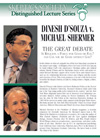 Is Religion a Force for Good or Evil? and
Is Religion a Force for Good or Evil? and
Can you be Good without God?
Dinesh D’Souza v. Michael Shermer
-
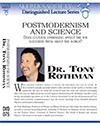 Postmodernism and Science
Postmodernism and Science
by Dr. Tony Rothman



